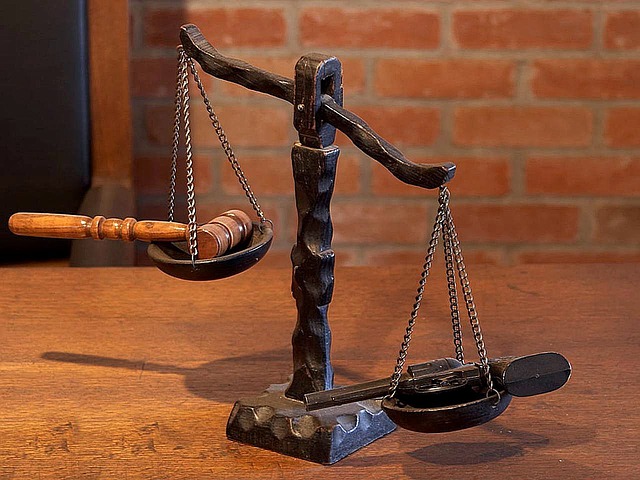 |
|
| Issue #78 • November/December, 2002 |
“I blame every juror who let him go, every juror who sat on that trial and believed this man over those little girls. I will never understand. And that is why he was out. And that is why his sickness was allowed to do this.”
Erin Runnion commenting on the acquittal, in a previous trial, of Alejandro Avila, the alleged murderer of her daughter, Samantha Runnion.
Even John Pozza, Alejandro Avila’s lawyer, was surprised when Avila got off in the molestation of two young girls.
“A lot of evidence that the prosecution or the police had gathered would give one the impression that there was evidence of guilt there…” Pozza said of that case. But Avila walked in 2001, and now, as the recently accused killer of Samantha Runnion, he will be tried for murder. The prosecution said it will seek the death penalty.
How could this have happened? How could a man, apparently guilty of child molestation, have slipped through the grasp of “justice?” How could a jury of his “peers” look at the evidence, then let him go? Why, when even his previous lawyer, after seeing the evidence against him and believing “…there was evidence of guilt there…,” was this man free to commit the ultimate crime: murder?
Before we try to answer that, let me pose some questions: Would we accept verdicts from a jury of 8 and 10-year-olds? Would the verdict of children be as good as a verdict rendered by adults? Of course not. Children are ignorant, emotional, and easily swayed.
Why, then, do we allow prosecutors and defense attorneys to filter out prospective jurors who are not ignorant or emotional, and can think independently? Why do we allow them to create juries that are essentially made up of adult children, juries whose verdicts we often cannot respect, or even understand?
Let me pose another question: Would we accept a jury made up exclusively of the prosecutor’s family, friends, and well-wishers? Or one made up of the defendant’s mother, sisters, cousins, and school chums? Ridiculous, right?
But what do we think the prosecutors and defense lawyers are trying to achieve with their incessant “challenges?” Do we think they’re trying to seat an impartial jury? Of course they’re not. What they’re looking for is a jury that will be sympathetic to their case, and the public and an impartial jury system be damned.
How did this corruption of our jury system come about?
Defense attorneys and prosecutors make their living by winning cases, not by getting justice. It does neither a prosecutor’s nor a defense attorney’s career any good to lose a case, even if he or she lost it because the defendant was obviously innocent or guilty. What neither of them wants on the jury is you and me and anyone else they believe will not be easily manipulated.
What is the purpose of a jury?
We can trace our jury system back to 1215 when English noblemen threatened civil war unless King John signed the Magna Carta which, among other things, guaranteed trial by jury to those accused by the state. Imagine how those noblemen would have felt if King John had said, “Sure, I’ll give you jury trials, but I handpick the jurors.” That would have been as good as no jury trials at all.
The jury system is supposed to serve both as a buffer between the citizens and the state and as a means of removing criminals from the streets. It makes no sense if jurors are chosen by the stateor by criminals.
A jury trial is supposed to ensure three things:
- When accusing the citizenry, the state acts in accordance with the law
- Citizens must get fair trials under those laws
- The laws themselves must be fair (It does us no good for a jury to simply determine, as the judges and prosecutors are so fond of saying, “the facts in the case,” if the laws themselves are bad.)
The solution to restoring a jury system that works as it is supposed to is simple: return to selecting jurors randomly, disqualifying only those with an interest in the outcome of the case. Yes, that means some ignorant, or emotional, or even bigoted people may sit on the jury, but it will also ensure that intelligent, unemotional, thoughtful people will serve as well. It will end the system where, because the prosecution and the defense try to ensure prejudiced jurors, we’re almost assured we will get jurors who are, at a minimum, ignorant, and at bestas in Avila’s 2001 trialidiots.
The system of justice we are supposed to have, where the people serve as a buffer between the state and the citizenry, is not perfect, but it’s the best anyone has come up with so far.
Mrs. Runnion’s grief not withstanding, the reason we often cannot get justice in this country is because we have allowed the best legal system in the world to be stolen from the people by the lawyers. If Mrs. Runnion and a million other moms and dads had raised their voices years ago and had demanded we get our jury system back and stop allowing prosecutors and defense attorneys to shape juries for their own self-interest, there would be fewer innocents in jail, fewer criminals on the streets, and Samantha Runnion might be alive today.














